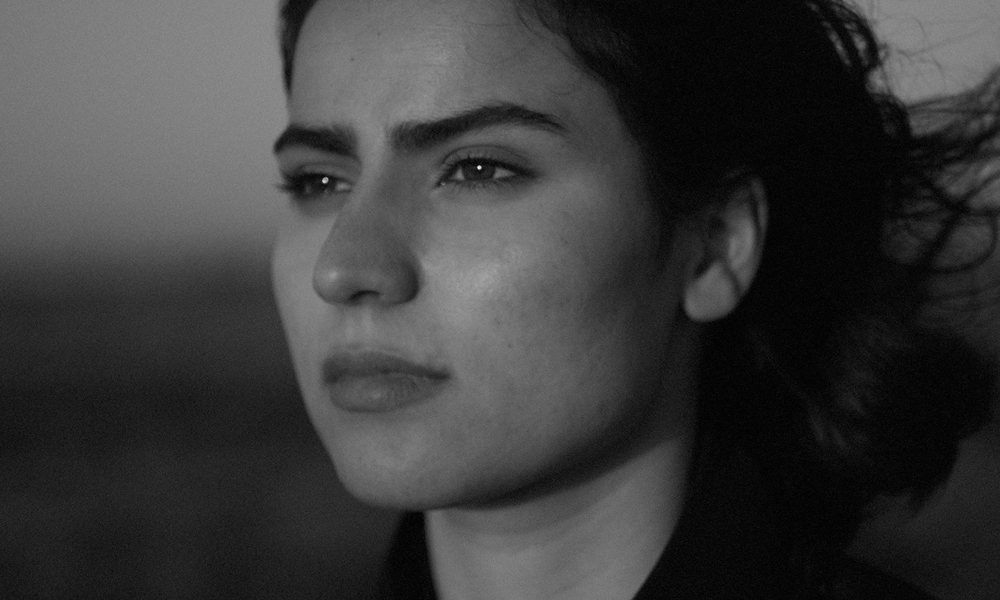Donya (Anaita Wali Zada) has a house but not a home in “Fremont,” living in an apartment complex where she is surrounded by fellow Afghan refugees in Northern California yet nonetheless can’t help but feel some degree of alienation. She seems equally comfortable – or not – at work in San Francisco’s Chinatown where her prior employment as a translator doesn’t seem to hold much currency at a fortune cookie company where she tucks optimistic messages into the after-dinner desserts, ambivalent what the future holds for her. She doesn’t have the same concerns that typically accompany such resettling – steady employment, no concern over her Visa, and a relatively smooth transition into life in an entirely different culture – and yet she hasn’t been able to sleep, uninterested in talking to anyone in her immediate orbit about her experience when she has to see them every day yet knowing that what she’s holding in is slowly eating away at her, making her feel alone in ways that supersede even being in a foreign country.
Babak Jalali’s effervescent fourth feature is unlike any immigrant story I’ve ever seen, but eerily captures the abstract longing of so many I’ve heard living in Los Angeles, a city made up of various ethnic enclaves where a given neighborhood may bear some resemblance to a birthplace elsewhere in the world yet that may only emphasis what can’t be replicated. The surreal experience of restarting a life is brought into sharp relief in crisp black-and-white, and the director couldn’t find a better co-writer for than Carolina Cavalli, whose recent directorial debut “Amanda” showed a distinctive loopy logic that makes complete sense in spite of the circuitous path it takes to get there and a gift for heroines that aren’t easily impressed, even if they find themselves in a vulnerable position. Donya never has prove herself to anyone in “Fremont” – it’s refreshingly always the other way around, though she does have to endure some therapy sessions at the suggestion of her neighbor Salim (Siddique Ahmed) if she wants to obtain some sleeping pills that will finally let her rest, with the psychologist (Gregg Turkington) insisting on a few sessions before writing a prescription.
That his practice seems shaped more by the words of Jack London’s “White Fang” than any medical journal is the kind of delightfully odd touch that makes “Fremont” so endearing and ultimately profound when in particular, the unusual workplace of a fortune cookie factory may come across at first as an ideal setting for a quirky comedy, but grows into an apt stand-in for all of America as a place dishing out platitudes of hope but exposes all the machinery propping up such an image. Donya sees the world clearly, though not necessarily herself in it and Zada is an instantly captivating anchor for the whole endeavor, letting on what she’s thinking in tantalizingly cryptic bursts with the filmmakers equally attuned to every subtle shift in mood as the character gradually lets down her hair. Jalali generously lavishes such curiosity to everyone in Donya’s life, from her coworker Joanna (Hilda Schmelling), who finds solace in karaoke, to Daniel (Jeremy Allen White), a chatty mechanic that Donya meets on her way to Bakersfield, making every encounter seem like opening a window to an entirely new universe and the overwhelming sensation for a viewer being one of fresh air.
“Fremont” will screen at the Sundance Film Festival on January 21st at 9:45 pm at the Broadway Centre Cinemas in Salt Lake City, January 22nd at 3:30 pm at the Redstone Cinemas in Park City, January 25th at 8:30 pm at the Megaplex Theatres at the Gateway in Salt Lake City, January 26th at 2:35 pm at the Ray Theatre in Park City. It will be available virtually from January 24th through 29th.




